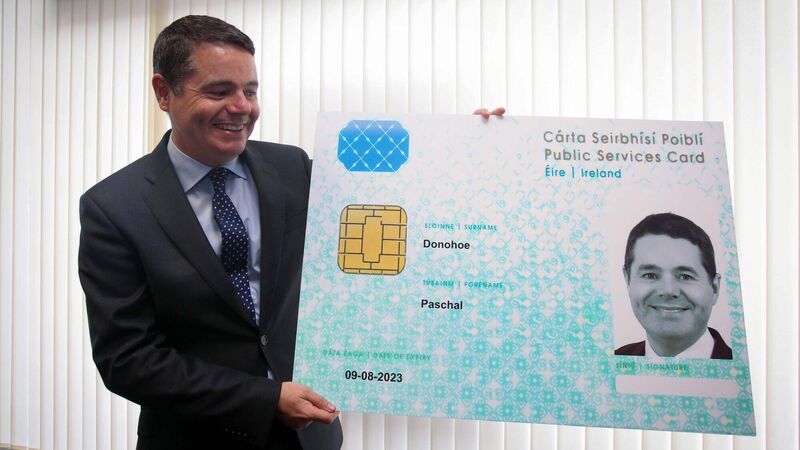Public services card contractor objected to previous tender process

Minister for Public Expenditure and Reform Paschal Donohoe registers for a public services card with the Department of Social Protection. Picture: Gareth Chaney
A company contracted by the Government to design and implement facial image matching software for the public services card had previously objected to a tender process for the manufacture of the public services card as being unfair.
Gemalto, a Dutch company and then world leader in the production of security cards and SIM technology with more than €3bn in turnover in 2017, secured the €383,000 contract for the design of the image-matching software in August 2018.










